
Poland positioned itself as one of Ukraine’s main supporters: it allowed its territory to be used for arms deliveries while becoming a major arms supplier in its own right and convinced its NATO allies to support Ukraine even more. In parallel, Warsaw is engaged in a process of strengthening its own army. All this shows that Poland is turning into a key actor for the European security, an actor that is, however, increasingly exposed to the theses of Russian propaganda.
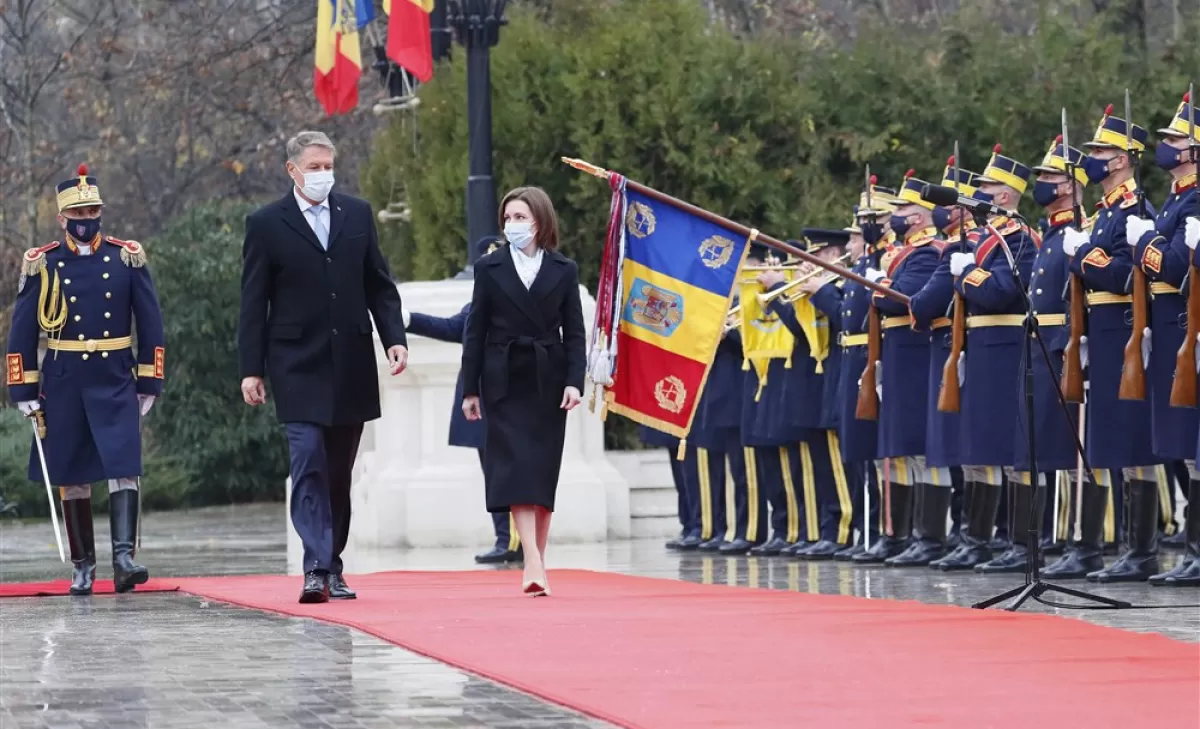
The government in Chisinau is bringing the country closer to NATO, which supplies the Republic of Moldova with weapons in order to prepare it to become a future theater of war against Russia, writes the Russian press, citing as an argument the delivery of 3 (THREE) armored vehicles by Germany. This is yet another plea for neutrality that ignores the facts, which show that, in fact, to Russia neutrality means only the acceptance of its hegemony and that it is ready to attack neutral countries that do not want to be in its sphere of influence.
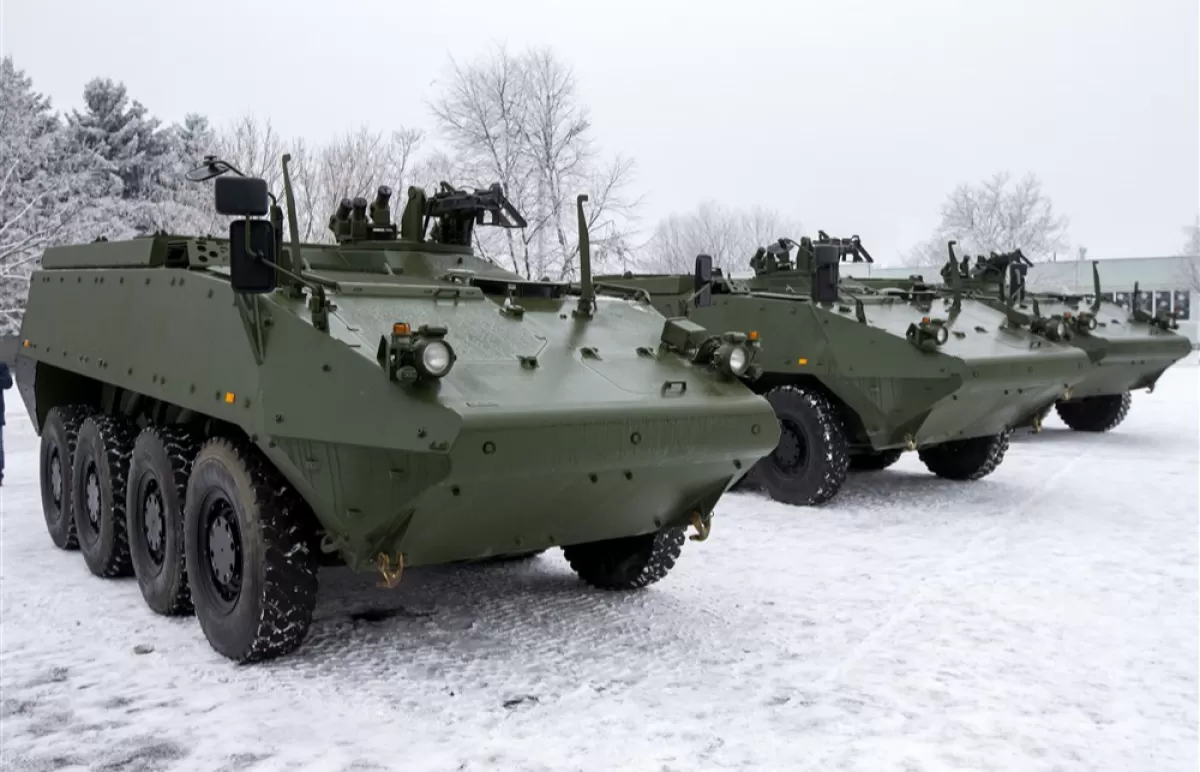
The Russian bombardments on Ukraine also alerted the authorities in Chisinau after, on several occasions, fragments of rockets fell on the territory of the Republic of Moldova. The incidents showed how vulnerable the Republic of Moldova is from a military point of view, without an anti-aircraft defense and with an army of only six thousand people. But the biggest danger to the security and stability of the state seems to come from elsewhere – from the informational space controlled by Russia and from some politicians who enjoy, openly or secretly, the support of Moscow.
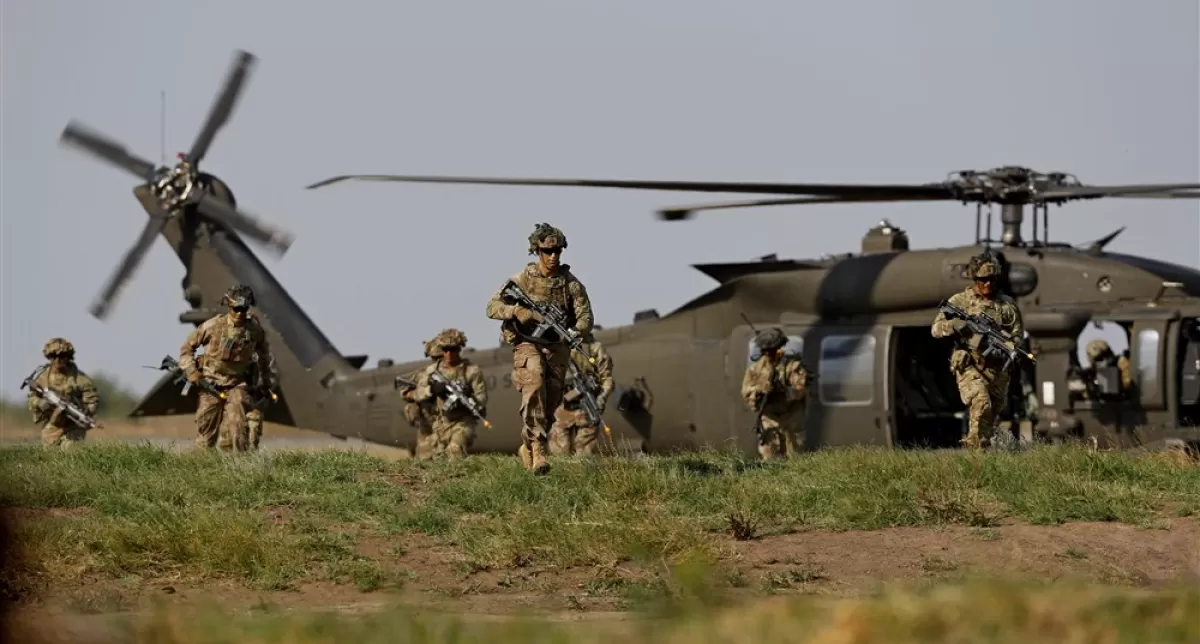
Romania intends to annex the Republic of Moldova and part of the territory of Ukraine, and NATO is supporting it militarily, according to a false narrative carried by the Russian media. Another narrative is that, in turn, Poland, seeks to annex part of the western regions of Ukraine. The false narratives start from theses, spread for years by Russia, regarding the artificial nature of the Ukrainian state and the aggressiveness of the West.

The meeting of NATO Foreign Ministers held in Bucharest over November 29-30 was not overlooked by Russian officials, nor propaganda media. Moscow interpreted the event in its own, different key, without however introducing new elements in terms of rhetoric. The allegations brought to the North Atlantic Treaty Alliance are the same: NATO has reached beyond the purposes it was originally designed for, it is promoting an all-out war against Russia while using the territory of other states, it is supplying Kyiv with weapons, prolonging the war indefinitely.

The power in Chisinau wants to force the entry of the Republic of Moldova into NATO and for this purpose is trying to silence the opposition through criminal cases, according to the Kremlin-affiliated media. The same media say that inviting the Republic of Moldova to the NATO meeting in Bucharest represents a violation of its neutrality status and a further confirmation that this country is already “with one foot” in NATO.
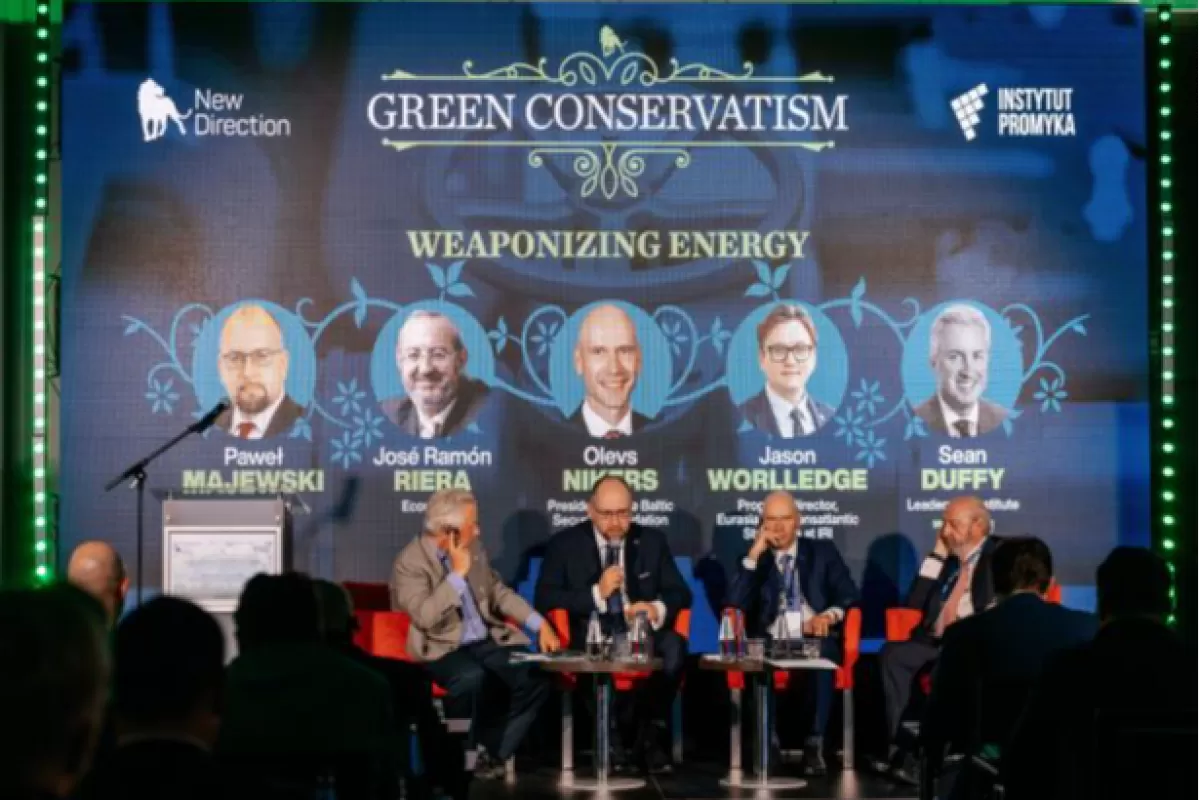
For the Baltic States and NATO, the best outcome of the war in Ukraine would be a complete defeat of Russia, according to the president of the Baltic Security Foundation, Olevs Nikers. However, Nikers feels that the most likely scenario for the end of the war would be a peace agreement, which means that the Baltic states and the Western world will be forced to deal with Russia on the long run.

The military conflict near the country's borders has brought the discussion about Romania's defensive capabilities back into focus, and now that Romania is about to celebrate its National Day on December 1st, the sovereignist propaganda resumed its discourse, announcing the systematic loss of state independence, this time symbolized by the fact that only foreign soldiers would participate in the December 1st parade. In reality, units of the partner armies, and not only from NATO, but even from the ex-Soviet space, are constantly invited to the parade.
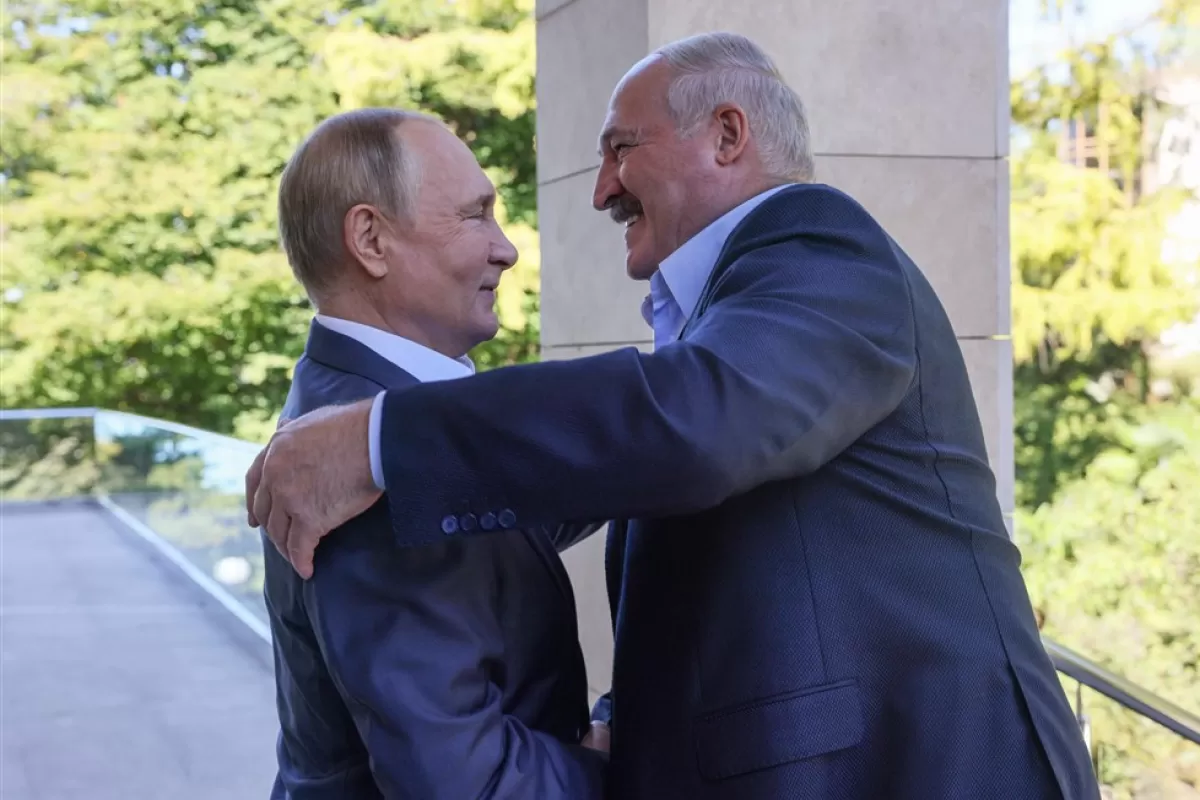
Belarus and Russia are forced to create a joint military group to defend themselves against a potential NATO aggression, fascist provocations by Poland and terrorist actions by Ukraine, according to propaganda narratives carried by the two countries’ media. In reality, Belarus is not targeted by any foreign power, but it has allowed Russia to use its territory for the aggression against Ukraine.
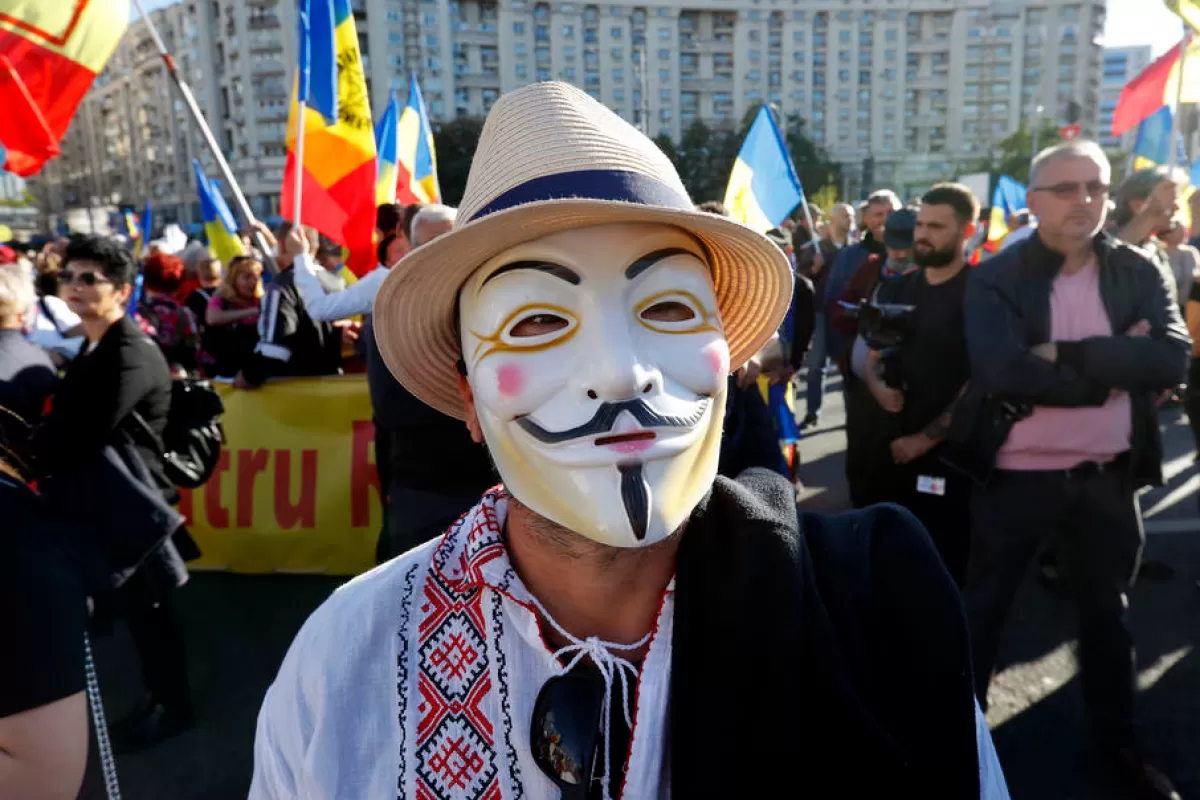
Unprecedented mass protests have been staged in Romania against NATO and the authorities’ support for Ukraine, pro-Kremlin news agencies write. In fact, Romania never saw any massive anti-NATO or anti-Ukraine protest actions, and the recordings in question do not show people shouting anti-establishment slogans or displaying protest banners that would suggest such large-scale actions. Moreover, the images published to support the idea of a protest were taken in a different season or even in a different country.

The pro-European government in Chisinau is closing universities and schools to procure Western weapons, and the people will be cannon fodder in the geopolitical games of the big players, former pro-Russian president Igor Dodon claims in an interview for the Russian press. The false narrative fits into the anti-NATO and anti-Western rhetoric that has intensified with the Russian aggression in Ukraine.

Most Ukrainians believe their country will win the war against Russia, reads a recent survey carried out by the International Republican Institute. The study also reveals that Ukrainians continue to argue in favor of Euro-Atlantic integration, although their perception of NATO reported fluctuations due to delays or readiness to provide military assistance, and they remain critical of their elected officials, despite the war.
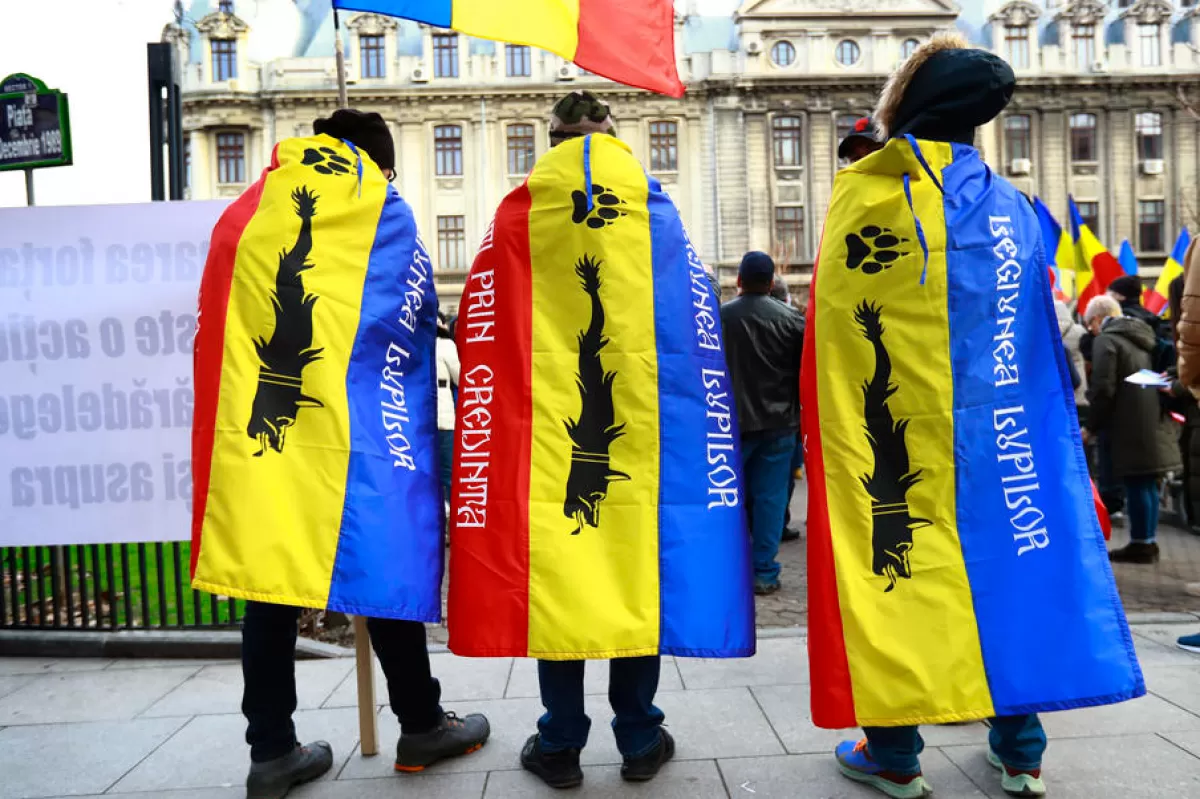
Most Romanian nationals want their country to leave NATO and the EU and there is no party that can politically capitalize on this move, according to a false narrative promoted by Gold FM, a radio station previously linked to promoting disinformation and fake news. The narrative is contradicted by surveys.

By joining NATO, Finland and Sweden would make the Alliance the main power in the Baltic Sea. Together, the two countries boast efficient and highly trained air, sea and ground forces, a good defense industry, and quick response capabilities. They occupy strategic position. And they would greatly consolidate the security of NATO’s most vulnerable member states – the Baltic countries.

With NATO-Russia relations at their lowest level in history, following the latter’s invasion of Ukraine, a stretch of land connecting Poland to Lithuania has come into focus. The Suwałki Gap borders Russia’s Kaliningrad enclave. It could be a tempting target, as its control would help Russia cut NATO’s land bridge to its Baltic members. It could also be used, this time by the Alliance, to further isolate Kaliningrad. Is the Suwałki Gap the powder keg between NATO and Russia?

At the 1997 NATO Summit in Madrid, the Alliance kicked off its eastward enlargement process by integrating ex-communist countries that used this opportunity to make sure they would never again fall under Russia’s control. A quarter of a century later, also in Madrid, the North Atlantic Treaty Organization launched a new strategic concept, taking note of Moscow’s aggressions and threats.

The regional context of the Russian invasion of Ukraine has inevitably led to a change in NATO's Strategic Concept. Accents have changed, and Russia has turned from a strategic partner of NATO into a “direct threat” to the security of the member states of the Alliance, as well as to some of their neighbors, including the Republic of Moldova.

According to narratives launched by pro-Russian politicians in Chisinau and officials in Moscow, the European Union offers the status of accession candidate using Russophobia as a criterion and, together with NATO, is building a war coalition against Russia. Such narratives have appeared in the context in which the Republic of Moldova and Ukraine received the status of candidate countries for EU accession.

The war in Ukraine has brought to the fore the poor state of the Moldovan army, which remains underequipped after being neglected by the authorities in the last three decades. Yet the commonplace view in Chișinău right now is that the army should at least fend off an aggression coming from Transnistria. Russia and its mouthpieces, on the other hand, continue to absurdly claim that Moldova modernizing its army would be tantamount to breaching its neutrality.

Poland is one of the NATO countries with the coldest relations with Russia. Concerned about Moscow's aggressive stance in the region, Warsaw called for a stronger NATO presence on the eastern flank and launched an ambitious program to equip its armed forces. But is Poland able to withstand enough attacks in the event of an attack?
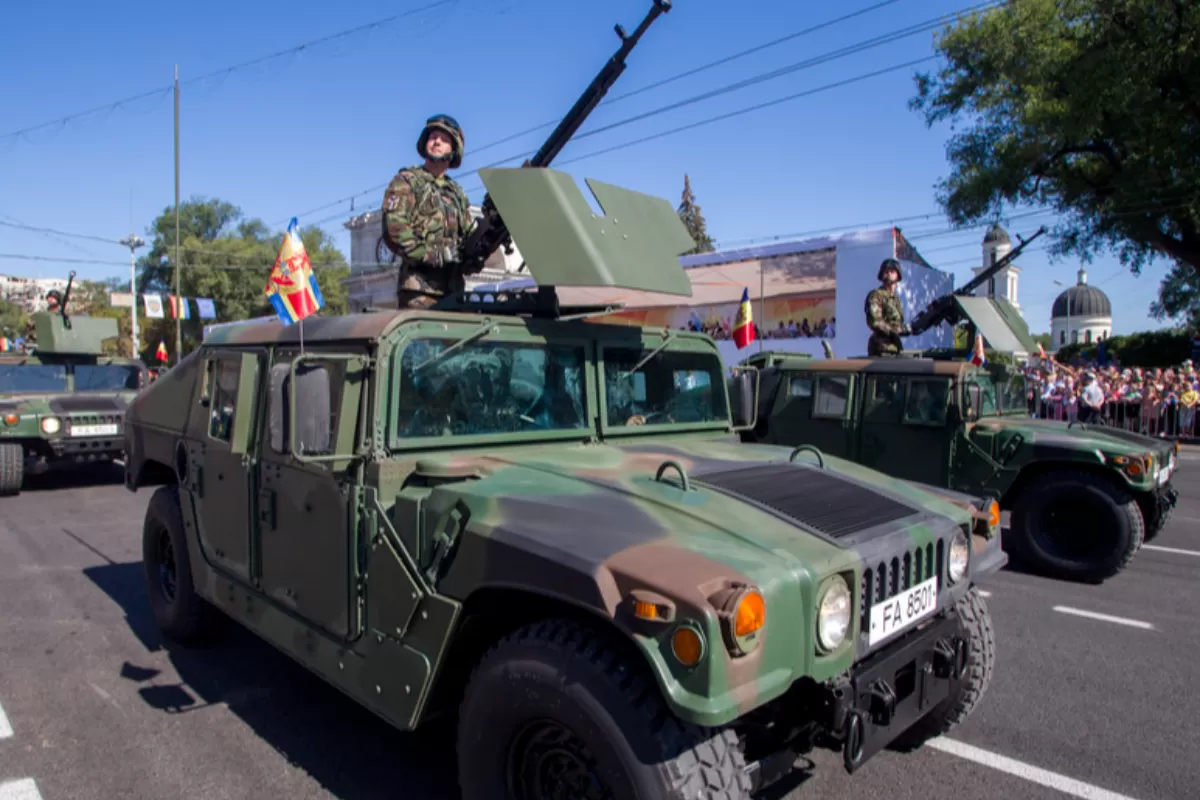
The war in Ukraine has sparked a great of deal of concern in the Republic of Moldova, where the people have seen just how vulnerable the country is in case of a Russian attack. Neglected for years due to underfunding, incompetence or for the sake of “neutrality”, the army seems underprepared to efficiently defend the country. The West is trying to lend a helping hand and has promised to deliver military equipment.

Western countries are waging a war by proxy in Ukraine against Russia, and seek to destroy this country, although the armed conflict is affecting the West more than it does Russia.

Turkey’s threats to veto Sweden and Finland’s NATO accession were interpreted as an attempt to secure certain concessions from the West in the context of economic difficulties at home. The previous policies of the Erdoğan administration – and of post-Ottoman Turkey in general – suggest that Ankara is actually pushing for more: it wants to impose its own agenda and perception over its allies.
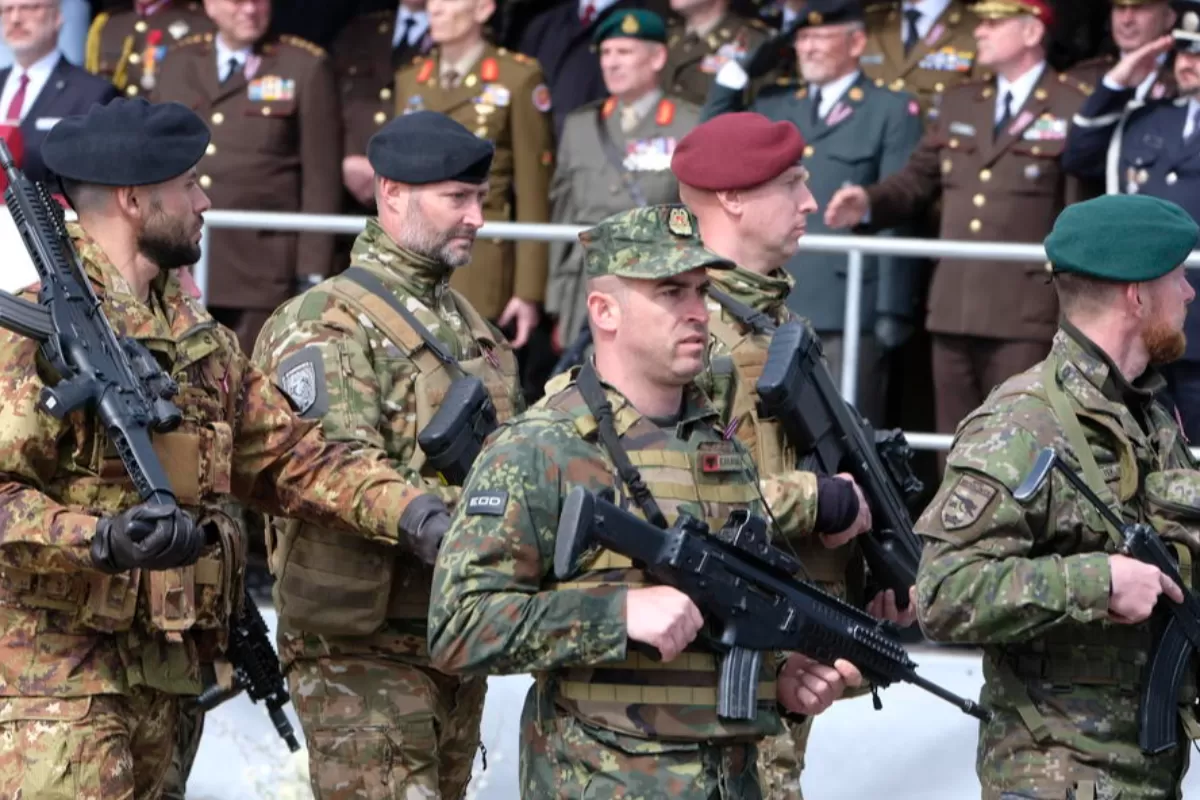
The Baltic states are probably among the NATO countries most exposed to a possible Russian attack and were among the first to express concern about the aggression of the Putin regime. Their NATO membership offers them protection, but experts feel that the Alliance needs to consolidate its position in the region.

The Government in Chișinău wants to renounce the neutrality status of the Republic of Moldova, while the West is providing this country with weapons to turn it into a living shield against Russia, the pro-Kremlin website politnavigator.net writes, reiterating narratives about Romania’s military presence in the Republic of Moldova and military support Moldova is allegedly providing to Ukraine.
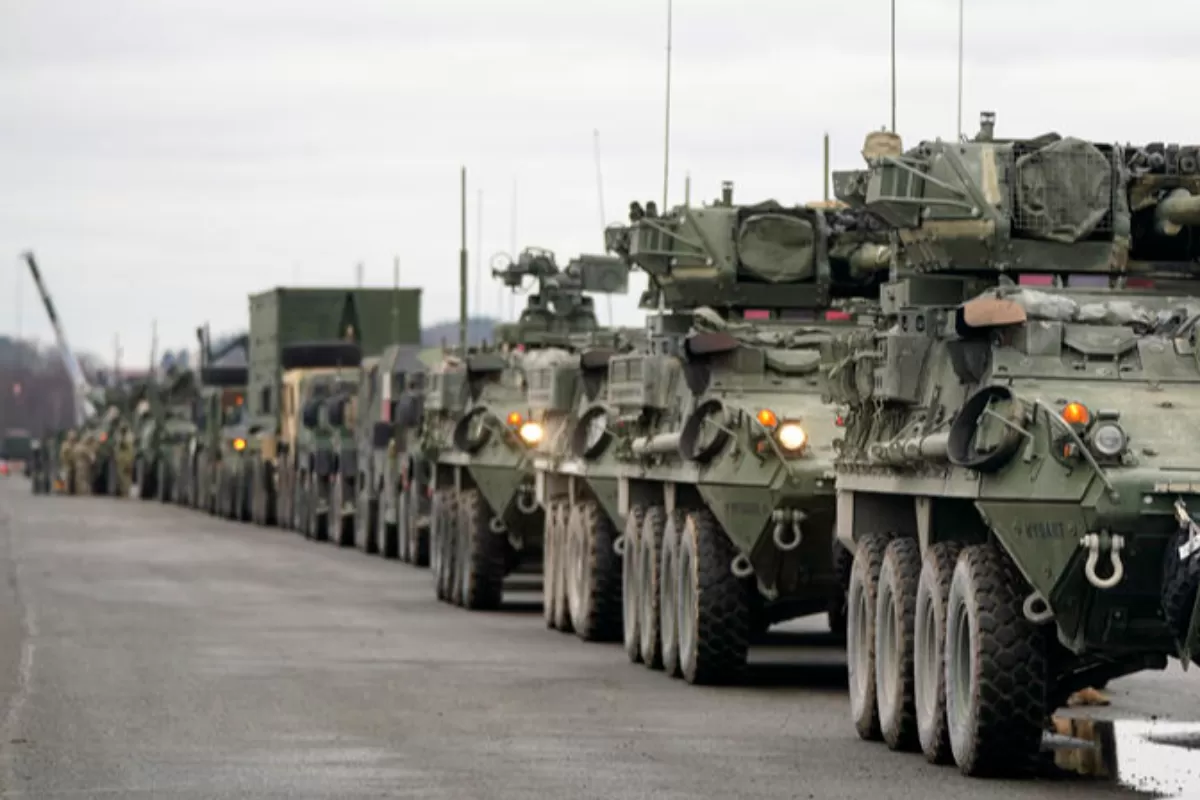
A convoy of Romanian military technology was caught on camera while moving towards with borders with the Republic of Moldova and Ukraine, the Russian media writes, referring to a video captured by an amateur with his mobile phone. The footage, used as part of other disinformation narratives as well, serves as an excuse to reiterate the fake news about Romania’s plans to occupy the Republic of Moldova and to attack the Transnistrian separatist region.
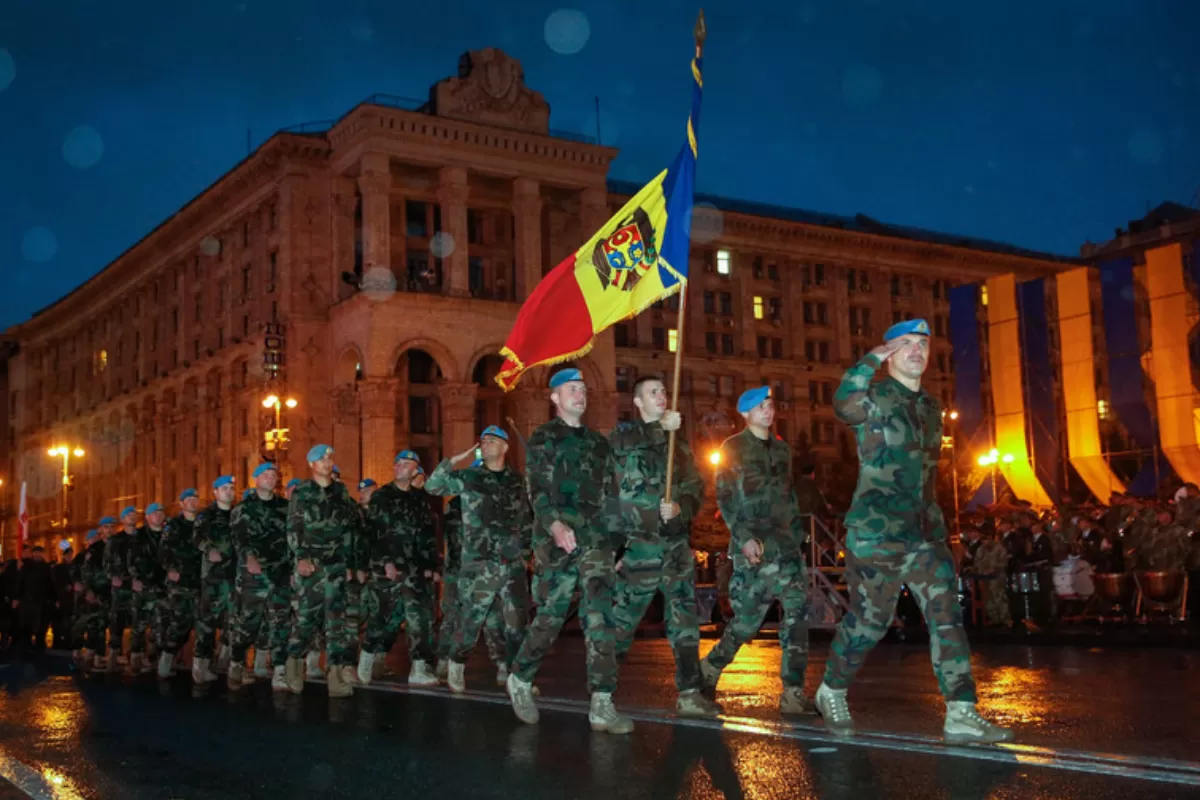
Western states and Ukraine have staged terrorist acts in Transnistria in order to push Moldova into NATO and capture the ammunition stored in the region from the days of the Soviet Union, the Russian media writes. These false narratives are used alongside an older metanarrative about the West’s responsibility for the war in Ukraine.

Ukraine's military intelligence service, along with the United States, has tried to trick Romania into sending special forces to Kherson, near Crimea, to be attacked by the Russians. The story was launched in Bucharest.

More and more international observers wonder if Turkish leaders, Recep Tayyip Erdoğan in particular, are truly capable of implementing a change. There are some signs indicating this might be possible, although the more knowledgeable pundits remain sceptic, claiming that a return to the reformist agenda of the early years of the government’s mandate (2002-2009) is impossible.

The Russian media is disseminating propaganda narratives, according to which Volodymyr Zelensky admitted in an interview to the BBC that Ukraine was the one that started the conflict with Russia, involving NATO member states in the war as well. In fact, Zelensky’s words were taken out of context and given a tendentious interpretation.

NATO is a weak organization that, in the event of a conflict with Russia, will not even defend its own members, as it has not defended Ukraine, writes in a comment ehomd.info, a web page blocked by the Intelligence and Security Service after the start of the war in Ukraine for spreading fake news.

The Russian media is distributing propaganda narratives, according to which the USA will deploy former military of the Afghan armed forces to Ukraine. In fact, the USA has not and will not deploy troops to the territory of Ukraine in the context of the war with Russia.